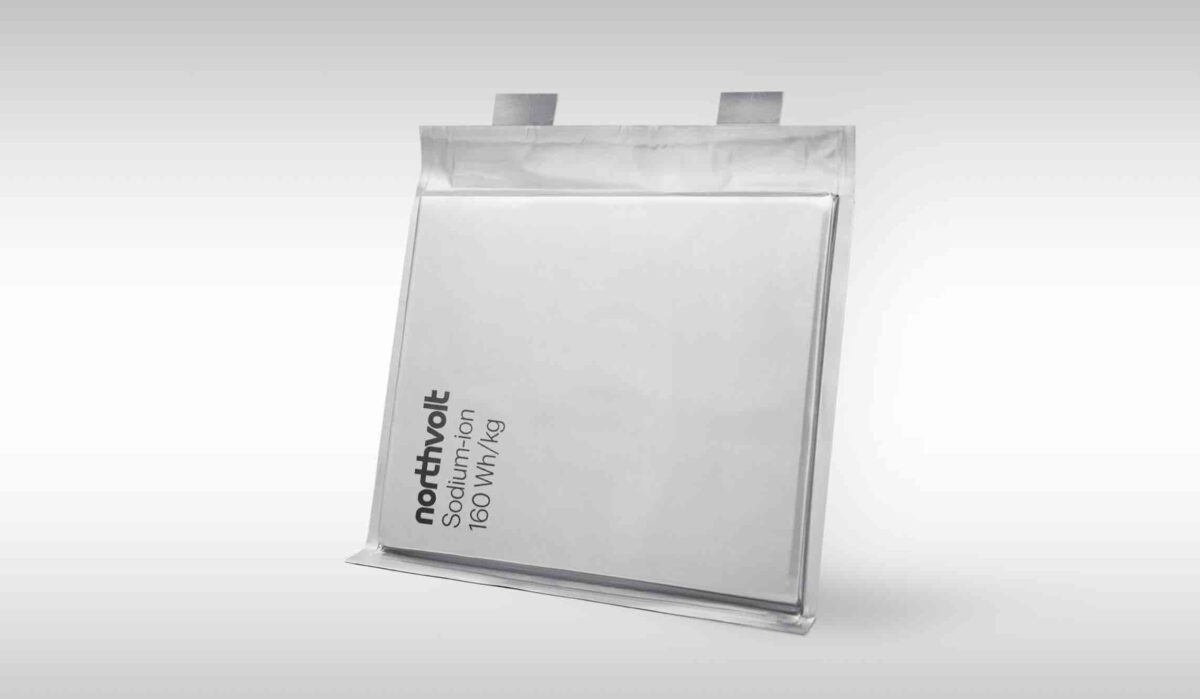Swedish battery developer Northvolt has unveiled a ‘state-of-the-art’ sodium-ion battery which the company says will enable the expansion of cost-efficient and sustainable energy storage systems around the globe, and will ultimately help the electric vehicle transition too.
“The world has put high hopes on sodium-ion, and I’m very pleased to say that we’ve developed a technology that will enable its widespread deployment to accelerate the energy transition,” said Peter Carlsson, CEO and co-founder of Northvolt.
The new sodium-ion battery may not be the holy grail of battery technology, but it’s certainly the next best thing at the moment – and is set to become the foundation for Northvolt’s next generation of energy storage solutions.
When compared to the traditional lithium-ion batteries we are familiar with, a sodium-ion battery is considered safer and more cost-effective, and is more sustainable than conventional nickel, manganese, and cobalt (NMC) or iron phosphate (LFP) chemistries.
That is due to the fact that it is produced with minerals such as iron and sodium that are abundant on global markets.
Further, Northvolt hopes that the low cost and safety at high temperatures of their new sodium-ion battery will ensure the battery is attractive for energy storage solutions in emerging markets such as India, the Middle East, and Africa.
Just as importantly is the fact that the battery can be produced with locally sourced materials, a breakthrough which Northvolt hopes will create “a unique pathway for developing new regional battery manufacturing capacity entirely independent of traditional battery value chains.”
Northvolt’s new sodium-ion battery is based on a hard carbon anode and a cathode based on Prussian White – a cathode material derived from the pigment Prussian Blue and which is a sodium rich iron analogue used as a positive electrode material in sodium-ion batteries.
According to Northvolt, they have leveraged “a breakthrough in battery design and manufacturing” and are planning to become the first to industrialise Prussian White-based batteries and bring them to the commercial market.
“It’s an important milestone for Northvolt’s market proposition, but battery technology like this is also crucial to reach global sustainability goals, by making electrification more cost-efficient, sustainable and accessible worldwide,” said Carlsson.
The sodium-ion technology at the heart of this battery has been developed in concert with research partner Altris.
The first generation of Northvolt sodium-ion cells are designed primarily for stationary energy storage solutions. However, Northvolt hopes that subsequent iterations of its technology will be capable of delivering higher energy density, opening the door for use in electric mobility solutions.
“Our sodium-ion technology delivers the performance required to enable energy storage with longer duration than alternative battery chemistries, at a lower cost, thereby opening new pathways to deploying renewable power generation,” Carlsson concluded.
“The potential of sodium-ion in this market alone will make a tremendous impact in the drive towards global electrification.”










